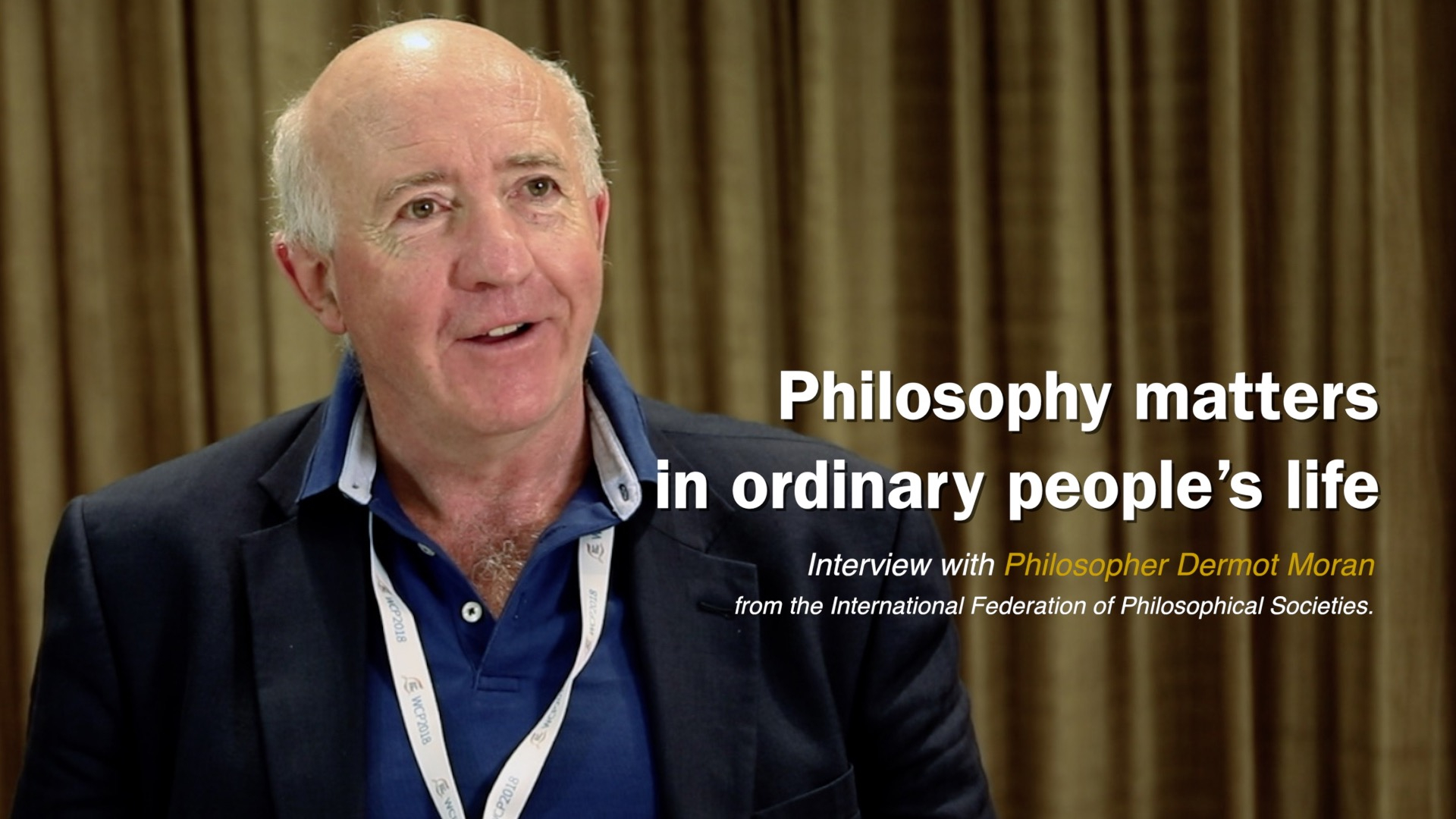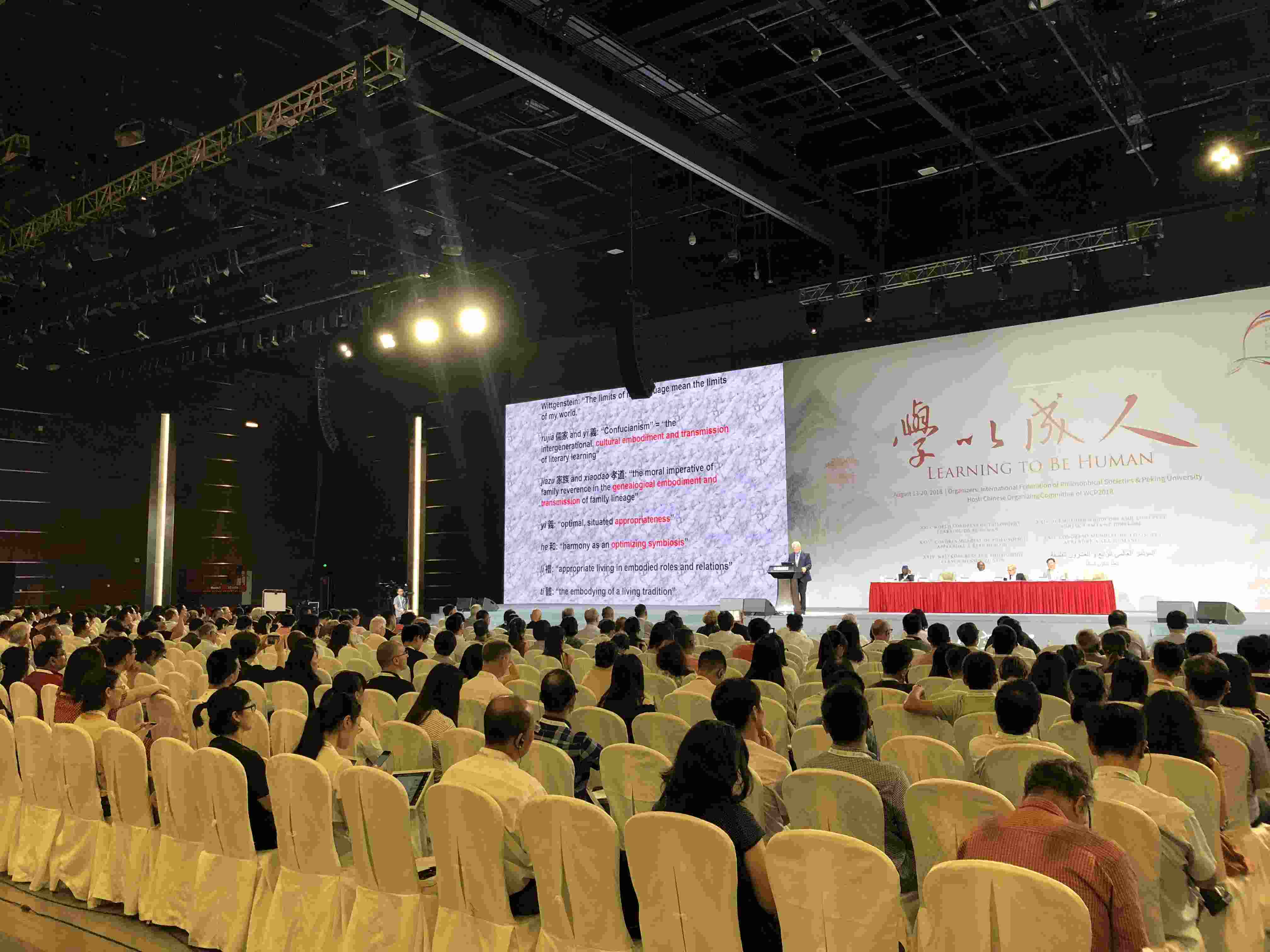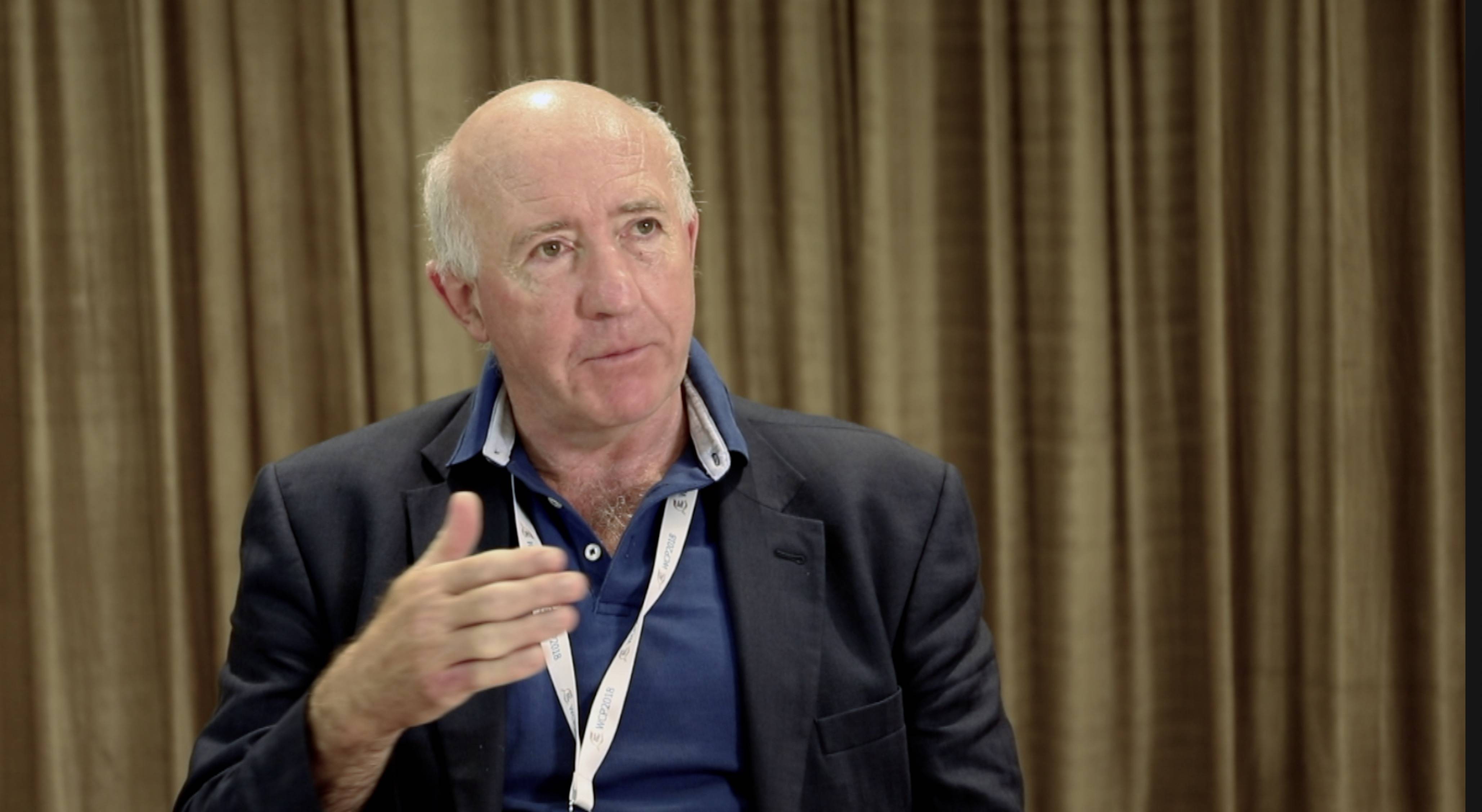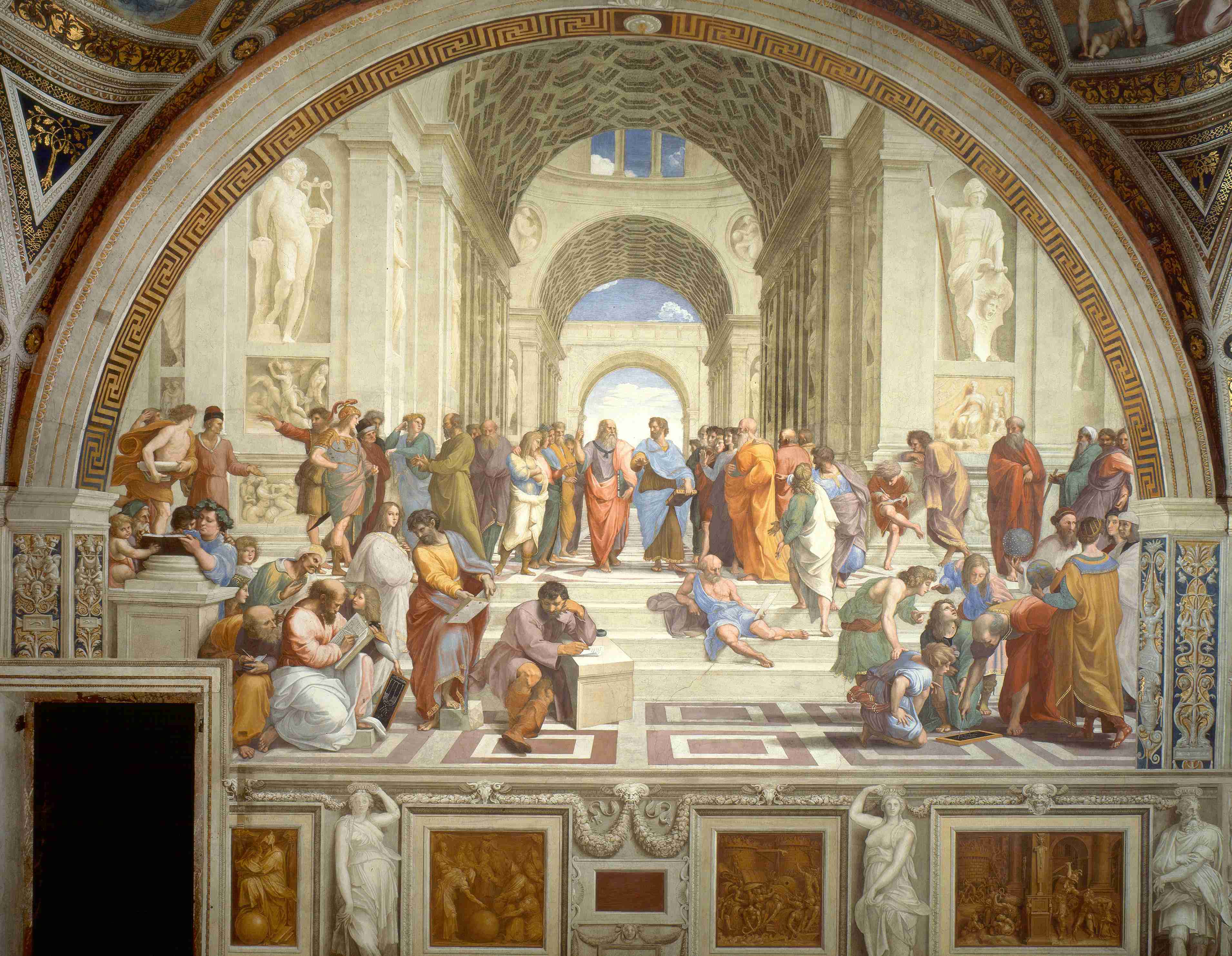02:24

In a vast conference center situated in northern Beijing, China set out to bring the School of Athens to life.
During the past week, around 2,000 global scholars have come to the homeland of Confucius for the 24th World Congress of Philosophy, the largest international event held every five years for expert thinkers.
The center is adjacent to the old stadiums of the 2008 Beijing Olympics, yet there are no architecture nearby reminiscent of ancient Greece, Rome, or 16th century Italy as depicted in Raphael’s fresco.
Philosophy wasn’t the only subject being discussed here either. The sprawling conference center was also hosting an Internet security conference and a forum on heating systems.

A seminar is underway as part of the week-long World Congress of Philosophy, August 15, 2018, Beijing. /CGTN Photo
A seminar is underway as part of the week-long World Congress of Philosophy, August 15, 2018, Beijing. /CGTN Photo
The fact that a century-old event had come to China for the first time was enough to stir excitement in its own right. Yet it remains to be seen if the media attention lavished on philosophy professor Dermot Moran, President of the International Federation of Philosophical Societies that jointly held the event with China’s Peking University, also represents a wider appreciation of philosophy by the general public. The discipline does not usually impress ordinary people as directly contributing to worldly success.
“I always have this conversation with my PhD students. When they come to me to do a PhD I say are you really sure? Do you realize that at the very time that you should be married and having a child or something, you would be without a job and studying in a library 16 hours a day,” Mr. Moran said, smiling.
Plato recognized this “otherworldliness” thousands of years ago with his famous allegory that a philosopher’s vocation is to leave a dark cave full of shadows in search for the source of light, and the difficulty of returning to the depths to persuade others that there is something beyond the darkness.
Millennia had passed before Bertrand Russell started writing his History of Western Philosophy, yet the question of philosophy’s applicability to the everyday lingered. “My purpose is to exhibit philosophy as an integral part of social and political life,” the British thinker writes.
In fact, this question of how philosophy is relevant to our lives may be more applicable than ever.

Professor Dermot Moran, Chairman of International Federation of Philosophical Societies. /CGTN Photo
Professor Dermot Moran, Chairman of International Federation of Philosophical Societies. /CGTN Photo
In the 21st century, where technology reigns supreme, greater access to different sources of information has dramatically increased the competition for our limited attention. Though Socrates’s contemporaries were probably as enthusiastic about rhetoric and theatre just as people today buzz about Donald Trump’s tweets and superhero movies, Plato and Aristotle didn’t own an iPhone that constantly diverted their attention with notifications every minute.
“I don’t think people need to start (philosophy) with a book,” Mr. Moran said. “Socrates went around Athens asking people questions like ‘Do you think you are happy? Why do you think you are happy?’ If you start asking those questions, you are already a philosopher.”
Mr. Moran suggested reading popular self-help works as well if they can engender one's curiosity.
“They (the books) ask the right question but give a very simple answer. Nobody will be satisfied with that answer if they are really serious. So they will move on. It’s the starting point. And then they will look at big classic texts.”

Is the flower of philosophy withering, or re-blossoming? /VCG Photo
Is the flower of philosophy withering, or re-blossoming? /VCG Photo
Philosophy’s relevance isn’t only an abstract debate, but also one of financial significance. Consulting firm McKinsey estimates that about 350 million US dollars are offered globally to researchers of various disciplines, of which only a fraction goes to philosophers.
Philosophy is often compared to science, which has brought forth wondrous technological advancements. But though science was an offspring of philosophy, is there now a break between mother and child? In 2011, the British theoretical physicist Stephen Hawking declared that “philosophy is dead,” saying that philosophers had failed to keep pace with scientific development in the modern day, “particularly physics.”
In defense of philosophy, Mr. Moran believes that the relation between the two systems of comprehending the world is not mutually exclusive. “The more advanced in science, the more we need philosophical reflection to protect the very human side of our experience.”
“If I go to the Mona Lisa painting and say ‘it’s just paint, on a piece of cardboard or canvas,’ that doesn’t explain the Mona Lisa and why we think it’s such an interesting painting. It’s interesting because we don’t know why she smiles.”
“That’s the question. 'What is the meaning going on here?' And meaning is not a matter of atoms,” the philosopher added.

People pose kissing each other in a kiss chain organised by pro-Europe 'Remain' campaigners seeking to avoid a Brexit in the EU referendum in Parliament Square in front of the Houses of Parliament in central London on June 19, 2016. /VCG Photo
People pose kissing each other in a kiss chain organised by pro-Europe 'Remain' campaigners seeking to avoid a Brexit in the EU referendum in Parliament Square in front of the Houses of Parliament in central London on June 19, 2016. /VCG Photo
Mr. Moran also believes that philosophy has something to offer for reconciling the divisive politics of the modern era, such as the controversy surrounding Brexit.
“What they had forgotten is that Europe is many nationalities. It’s hard to keep balance in these nationalities that the British felt they were being neglected in their identity. This raises philosophical questions, how can we have a universality of culture and preserve diversity of individual commitments to languages, culture traditions and individual practices of democracies. That means philosophy has to enter into these debates.”
But Mr. Moran recognized that a philosophical approach to a political conundrum takes time and would probably disappoint those who seek an immediate answer.
“Philosophy is a long-term practice. I mean generations, hundreds of years.”

The School of Athens,Raphael, fresco, 500 cm × 770 cm, Apostolic Palace, Vatican City. Plato and Aristotle, two of the most influential philosophers in the history of Western philosophy, are depicted standing at the center.
The School of Athens,Raphael, fresco, 500 cm × 770 cm, Apostolic Palace, Vatican City. Plato and Aristotle, two of the most influential philosophers in the history of Western philosophy, are depicted standing at the center.
As indicated by the Renaissance painting, Western philosophy was once dominated by lone figures such as Aristotle and Plato. Few philosophers nowadays would dare compare themselves to the originality and genius of the two ancients. But the discipline has moved beyond a culture of individual geniuses to more of a “communal way of thinking,” in the words of Mr. Moran.
“You’ll have something like a more cooperative vision of philosophy where many people are together working on a problem.”
But the relevance of and interest in philosophy may come down to how people now can apply the discipline – even unknowingly – to the big questions such as knowing about the universe and how to live a virtuous life, as well as to those that are affecting their daily life.
“Philosophy is a very special calling. I don’t think anybody should do professional philosophy because it’s very challenging, just like not everybody can be an artist. But when they get the sense of what philosophy is, they enjoy it.”







